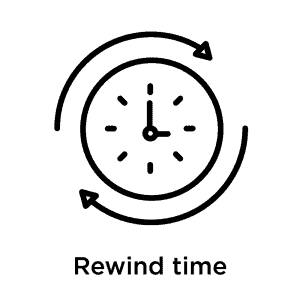
If you get approved for Social Security Disability Insurance (SSDI) benefits in 2024, you might be eligible for back pay or retroactive benefits. The process has seen some changes, and it’s important to understand how these updates might impact your eligibility. If you qualify for Supplemental Security Income (SSI), you could also receive back pay.
Retroactive benefits might go back to the date you first suffered a disability—or up to a year before the day you applied for benefits. For SSI, back pay goes back to the date of your most recent application for benefits.
A Pittsburgh social security disability insurance lawyer can help you understand your options regarding back pay and retroactive benefits. They can assist in ensuring you receive all the benefits you are entitled to by properly documenting your disability onset date, filing appeals if necessary, and providing guidance throughout the process.
What Is Back Pay for Social Security Disability Benefits?
The disability claims process can be challenging and often takes several months or more to complete, especially in 2024, as processing times may be affected by increased demand—which is where back pay comes in.
Back Pay Compensates You for the Time Spent Waiting on Your Application
While you wait for the results of your application, your back pay accumulates. If Social Security approves your application, you will begin receiving monthly payments, which is the standard practice in 2024.
In addition, you might receive a lump sum payment for your back pay if you are getting SSDI or several smaller payments if you qualify for SSI.
40+ years of experience from strong, knowledgeable, compassionate attorneys.
Start A Free EvaluationHow do I Get Retroactive Benefits?
If you qualify for SSDI, you might also get another type of benefit in addition to back pay. Retroactive benefits might be available to you if you suffered an impairing injury or illness and then waited to apply for benefits.
Retroactive benefits begin the day you were first unable to work and met the criteria to get SSDI benefits, and this remains applicable in 2024.
This can be no longer than a year before you first applied for disability benefits. If we handle your disability claim, we can help you understand if you meet the criteria to get retroactive benefits.
We know you’re hurting. We can help. Free case evaluations, home and hospital visits.
Contact Us Now For HelpHow Far Back Will My Disability Benefits Pay?
Your established onset date, or EOD, is the date you first met the Social Security Administration’s (SSA) definition of disability. To establish your EOD, the SSA could use the following:
- The date you claimed your disability began on your application
- A date it assigns based on your medical records
- A date assigned during the appeals process based on changes in your status
Your EOD plays a key role in both back pay and retroactive benefits. If the SSA accepts the date you put on your SSDI application, you might be able to collect retroactive benefits back to this date — minus the SSA’s mandatory five-month waiting period.
You need an attorney with the experience and dedication to give your case the care it deserves.
Start A Free EvaluationWhat if My Disability Status Changes During the Application Process?
In some cases, applicants do not meet the disability eligibility criteria when they first apply. However, as they navigate the appeals process, their medical status changes, and they qualify for benefits.
When this occurs, the SSA will assign a new EOD. While this would allow you to begin receiving monthly disability benefits, it might also eliminate some of your retroactive benefits and limit your back pay.
We can address all the legal hurdles that may be keeping you from getting a fair settlement.
Speak To An Attorney TodayWill an Appeal Affect My Back Pay Amount?
If we handle your appeal, we will do everything we can to prove that you qualify for disability benefits and that you deserve back pay. We will also argue for retroactive benefits if you are eligible.
In some cases, if we cannot show you have medical evidence of a qualifying impairment at the time you originally said that you became disabled, it might be difficult for us to collect back pay or retroactive benefits for you. We can discuss challenges like this during a free consultation about your case.
Can an Attorney Help Me with My Benefits?
The disability lawyers from our team will help you fight for the disability benefits you need, including back pay and retroactive benefits. Let us:
- Review your application
- Help you identify documents needed to prove when your disability started
- Help you file your claim for benefits
- Help you understand why your claim may have been denied
- Request your appeals hearing and represent you before the Administrative Law Judge
- Take your case to federal court, if necessary
Seeking disability benefits can be complicated and may take even longer in 2024 due to potential delays. It is not uncommon to face a denial of your initial claim. If you do receive a denial or if the SSA disagrees with the onset date of your disability, we can help you appeal and seek approval of benefits.
Our Attorneys Will Determine if You Can File a Third-Party Injury Case
The injury that led to your disability may have resulted from someone else’s negligence. In other words, someone else could be responsible for paying you because they caused your injury. Common third parties in work injury cases include subcontractors, vehicle drivers, suppliers, cargo loading companies, and more.
Our personal injury team can investigate your case and tell you if you are eligible to file a third-party injury claim. If so, we can help you recover additional compensation, such as for reduced earning capacity and pain and suffering.
You Pay Us Nothing Until We Get Benefits on Your Behalf
You may not be certain if hiring an attorney makes financial sense for you. However, keep in mind that you don’t have to pay any upfront fees, hourly rates, or retainers to get our legal help.
We work based on contingency fees, which means that we:
- Only get paid if we win results for you
- Lower your financial risk of seeking legal help
Call Berger and Green Today to Get a Free Case Review
At Berger and Green, we have helped thousands of people with their disability benefits claims. We know how to seek your best results through the appeal process, too.
You don’t have to be alone in your claim for benefits. Call Berger and Green today for a complimentary consultation to discuss your 2024 disability claim.










